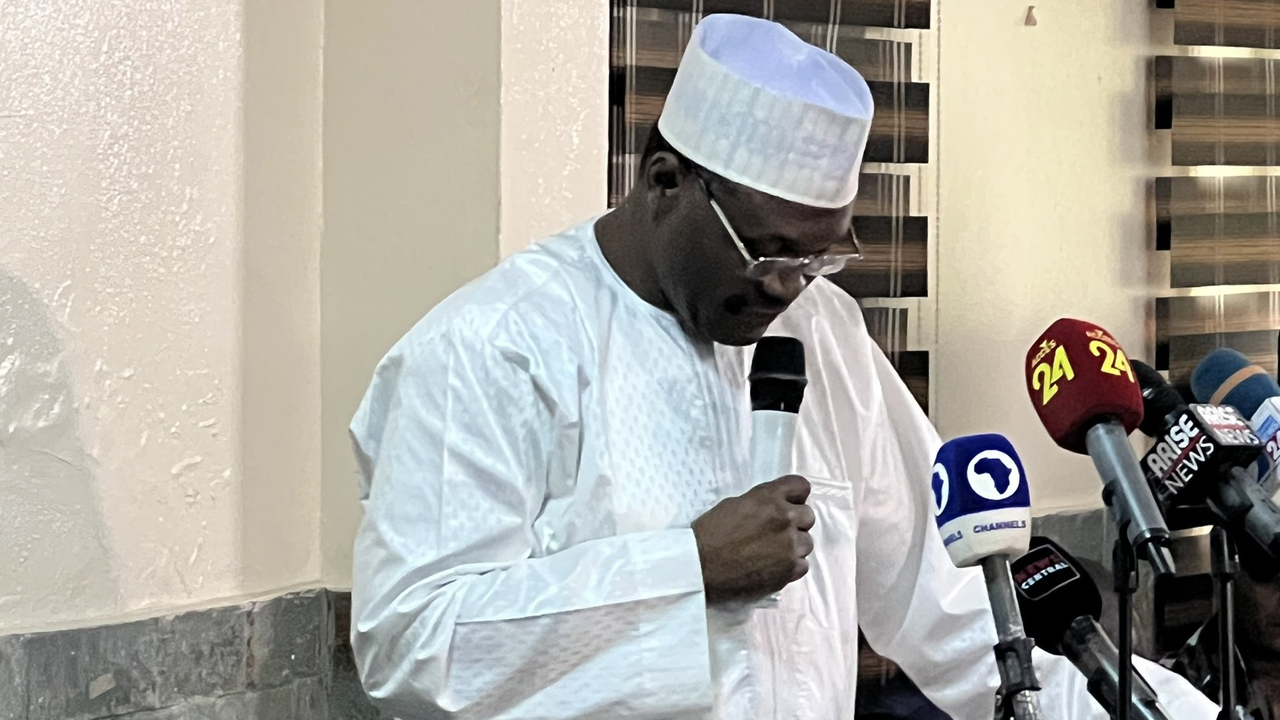
Photo/twitter/inecnigeria
INEC chairman, Prof. Mahmood Yakubu, gave the assurance in Lagos, yesterday, during a two-day capacity-building workshop for the INEC press corps.
The workshop focused on critical issues in the Electoral Act 2022 and the commission’s processes, innovations and preparations for the general elections.
Yakubu’s assurance came after the Coalition of United Political Parties (CUPP), earlier this month, alleged secret plans by some politicians to stop the use of BVAS and electronic transmission of results.
CUPP also alleged a lawsuit had been instituted before the Federal High Court in Owerri, Imo State to that effect.
But the INEC chairman, represented by National Commissioner and Chairman, Information and Voter Education Committee, Festus Okoye, said the goal of the commission remains electoral justice where every Nigerian would experience electoral fulfilment.
According to him, the commission will continue to use technology to improve and enhance the credibility of polls in the country.
MEANWHILE, condemnation has trailed the final list of presidential and National Assembly candidates released by INEC.
A civil society organisation, Women in Politics Forum (WIPF), lamented the low number of female candidates contesting the 2023 general election.
According to WIPF, the development reveals the continuous marginalisation of women in the nation’s political space.
Addressing journalists in Abuja, yesterday, WIPF president, Ebere Ifendu, said that out of the 18 political parties in the country, only one candidate contesting under the Allied Peoples Movement (APM) is female, adding that no party fielded a female as a vice presidential candidate.
The forum, therefore, declared support for the presidential candidate of APM and Delta State-born politician, Princess Chichi Ojai.
For the Senate, Ifendu observed that out of the 1,101 candidates vying for 109 seats, 92 are women, representing 8.35 per cent while 288 women are contesting for the House of Representatives out of 3,122 candidates.
She noted that cumulatively, there are 381 women among the total of 4,259 contestants for the presidency and National Assembly seats, amounting to 8.9 per cent of the candidates.
Ifendu recalled that at the end of the 2019 general elections, women made up a total of 4.71 per cent of elected officials, showing a decline from 2015 when 5.6 per cent of elected officials were women.
She said: “Currently, there are about 15 states without a female legislator in the Houses of Assembly and while the list of candidates for state Houses of Assembly is yet to be released, the released list of candidates does not tell of a promising increase for Nigerian women in the Houses of Assembly.
“A state-by-state analysis shows that of the 36 states and the Federal Capital Territory, five states did not field any woman as a candidate to the Senate while one state did not field any woman as a candidate to the House of Representatives.
“The states lacking, in this regard, are Kano, Sokoto, Taraba, Yobe and Zamfara (for Senate) and Jigawa for the House of Representatives.
“This means that even without conducting elections, 13.5 per cent of states will not have female representatives at the Senate while 2.7 per cent of states will have no female representation at the House of Representatives.”



